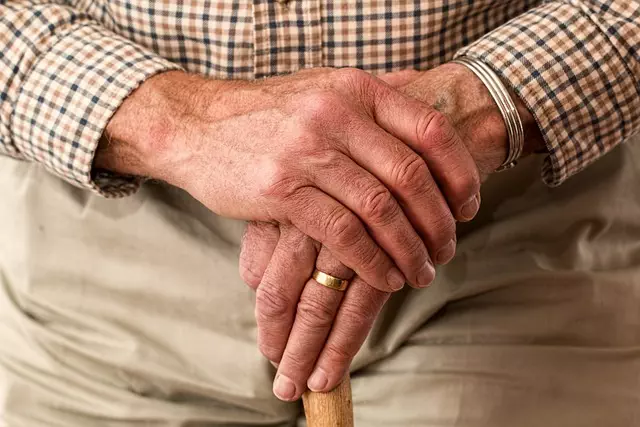Elderly companion services have become an integral solution addressing the loneliness epidemic among seniors. These services go beyond traditional companionship by offering regular social interactions and activities tailored to individual interests, which are crucial for maintaining mental and emotional health in older adults. They not only provide friendship and support with daily tasks but also assist with transportation, encourage physical activity, and monitor health, ensuring a comprehensive approach to senior care. With a focus on personalization and adaptability, these services promote independence while offering the necessary support to enable seniors to age with dignity. By integrating technology such as virtual visits and online activities, elderly companion services enhance social connections and mental well-being, keeping seniors engaged with their communities. This combination of in-person interactions and technological tools ensures that the services are responsive to diverse needs, significantly improving the quality of life for isolated seniors. These tailored companionship solutions are pivotal in fostering meaningful relationships and overall health for older adults who face the challenges of social isolation.
As we age, the fabric of our social connections can thin, leading to a quieter existence that may go beyond mere preference into the realm of isolation. Elderly companion services emerge as a vital link for seniors facing solitude, offering structured companionship to enrich their daily lives. This article delves into the transformative role these services play in combating loneliness among our older population and presents actionable strategies that can enhance social interaction through meaningful engagement. By exploring this topic, we aim to highlight the importance of maintaining a robust social support network for isolated seniors, ensuring they remain connected, informed, and supported within their communities.
- The Role of Elderly Companion Services in combating loneliness among seniors
- Strategies for Enhancing Social Interaction through Companion Services for Isolated Seniors
The Role of Elderly Companion Services in combating loneliness among seniors

The challenge of combating loneliness among isolated seniors has gained significant attention, with elderly companion services emerging as a vital solution. These services not only provide companionship but also ensure that older adults have access to regular social interactions, which are crucial for their mental and emotional well-being. Elderly companion services offer a range of activities tailored to the interests and abilities of each individual, fostering meaningful connections and a sense of belonging. By matching seniors with compassionate and reliable companions, these services help bridge the gap left by diminished social circles, enabling seniors to maintain an active and fulfilling lifestyle. The role of these companion services is increasingly recognized as a key component in addressing the silent epidemic of loneliness among the elderly population, offering a lifeline for those who may otherwise feel forgotten or disconnected from their community.
Furthermore, the benefits of elderly companion services extend beyond mere companionship. These services often include transportation to social events, assistance with daily tasks, and even health monitoring, ensuring a holistic approach to improving the quality of life for seniors. The flexible nature of these services allows for personalized care, which is adaptable as an individual’s needs change over time. By promoting independence while providing essential support, elderly companion services play a pivotal role in enhancing the social interaction and overall health of isolated seniors, contributing to their ability to age gracefully with dignity and companionship.
Strategies for Enhancing Social Interaction through Companion Services for Isolated Seniors

The challenge of social isolation among seniors is a significant concern, with elderly companion services emerging as a vital resource to foster meaningful interactions and improve overall well-being. These services are designed to provide companionship tailored to the individual needs of each senior, offering activities that align with their interests and abilities. By pairing isolated seniors with compassionate and trained companions, these services facilitate social engagement, which is crucial for maintaining cognitive and emotional health. The role of these companions extends beyond mere friendship; they assist with daily tasks, encourage physical activity, and provide a sense of security and familiarity that can be lost amidst loneliness. This not only enhances the quality of life for seniors but also ensures they remain an active part of their community, maintaining social connections that are vital for mental health.
Furthermore, elderly companion services often incorporate technology to bridge gaps between seniors and their families, as well as to connect them with a broader social network. These services can include virtual visits, online group activities, and digital platforms where seniors can communicate with peers, share experiences, and participate in collective hobbies. By leveraging both in-person and remote interactions, these services are adaptable and can cater to the varying needs of isolated seniors, promoting a holistic approach to social interaction that enriches their daily lives and supports their health and happiness.
The importance of maintaining social connections, especially in older adults, cannot be overstated. Elderly companion services play a pivotal role in addressing loneliness and isolation among seniors, offering tailored engagement that meets individual needs. Through thoughtful strategies aimed at enhancing social interaction, these services not only combat the adverse effects of isolation but also enrich the lives of those who utilize them. As our populations age, the demand for such companionship services is set to rise, underscoring their significance in fostering a more connected and supportive society for our senior citizens.


